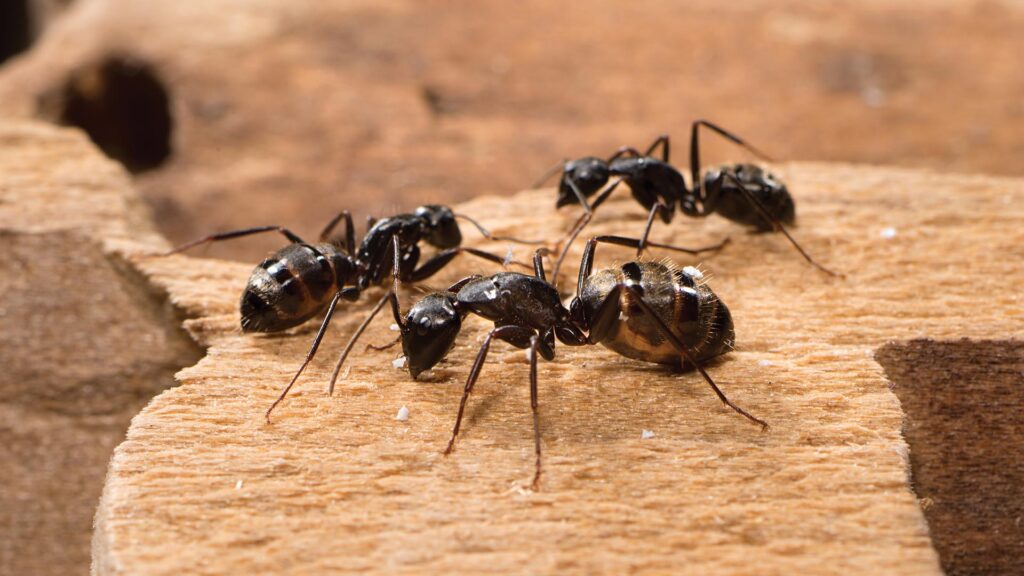It’s summer, which is prime ant season. And while ants at your picnic can be annoying, ants in your home or business are much worse, especially if they are carpenter ants. When the ants go munching, you can end up with thousands of dollars worth of damage, which is typically not covered by insurance.
Carpenter ants live in colonies of 5,000 or more, so to protect your property, it’s important to know the signs of a possible infestation, and then take quick action.
Listen Up: Signs You Have an Infestation
Carpenter ants don’t actually eat wood; they excavate it to create their nests, which can cause a lot of structural damage to a home or building. You may actually be able to hear this species at work as a faint rustling sound behind your walls, especially at night when they are most active.
Other signs include:
- Spotting large ants, about 1/8 to 1/2 of an inch long. Reproductive males and queens may even be as large as 3/4 of an inch. They are typically black, although some are brownish or red. Some of them may have wings.
- Finding small piles of sawdust that reappear after you clean them.
- Hearing a hollow sound when you tap on wooden beams and frames around windows and doors.
Bidding Farewell
Carpenter ants are very common in New England. In fact, most of the calls we receive for big, black ants are indeed carpenter ants. They can be particularly hard to get rid of since their nests are often more difficult to locate. They hollow out nests in both dry and moist wood, though they prefer the latter, especially if it has damage due to water, mold or fungus.
Usually, the only way to completely remediate an infestation is to call a qualified pest professional who can identify the species and develop a treatment plan.
Our expert technicians will first make a positive identification of the ants, and then do an inspection to locate the nest and see if it is inside or outside the home. Based on its location, access points and other considerations, our treatment plans may include inside and outside applications of an insecticide dust or aerosol. When possible, we treat the nest directly.
When the ants go munching in your home or business, give us a call right away to avoid costly damage.

